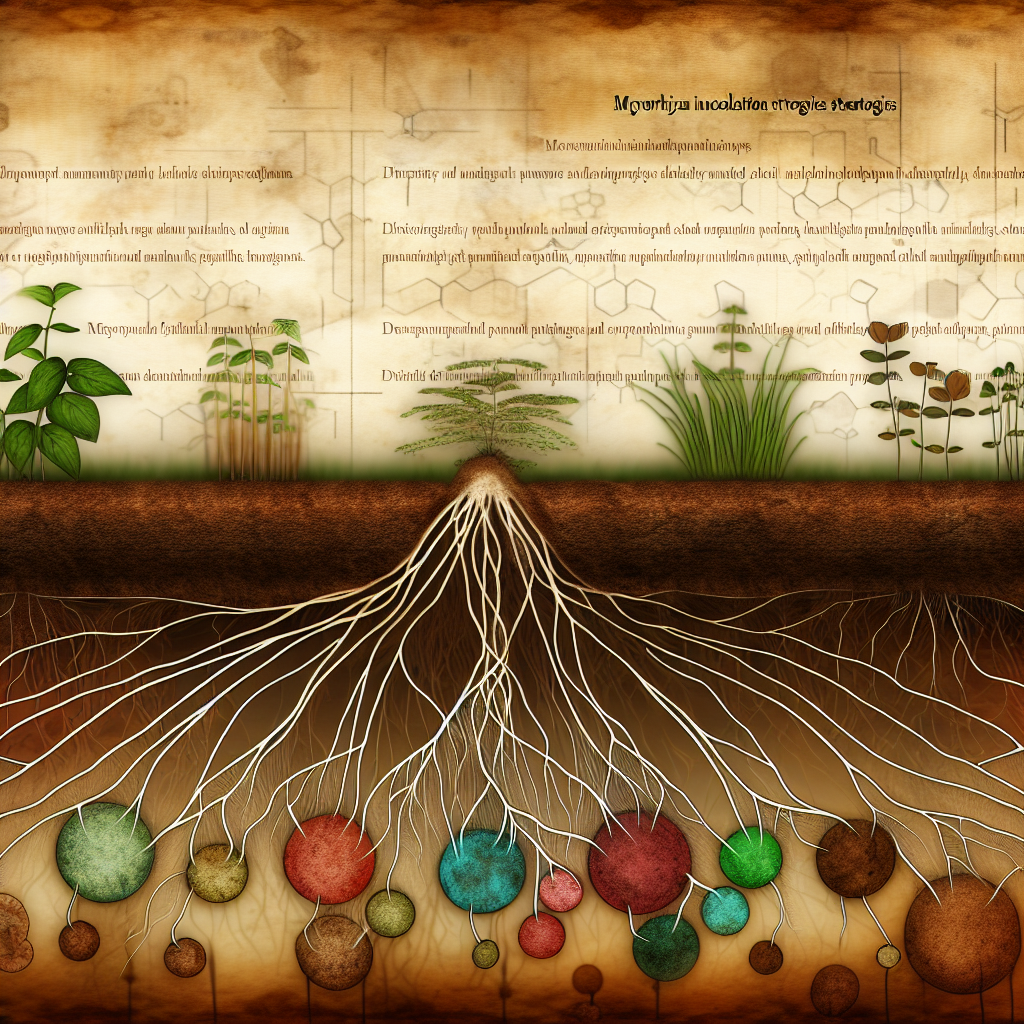Mycorrhizal Inoculation Strategies: Selecting Species for Enhanced Nutrient and Water Uptake
Introduction
As cannabis cultivation evolves from legacy farming to precision agriculture, the importance of soil biology is becoming fundamental. One of the most promising tools in sustainable cannabis farming is mycorrhizal inoculation. This refers to the symbiotic relationship between fungi and plant roots that facilitates better nutrient absorption, drought tolerance, and overall plant resilience.
The term “mycorrhiza”, meaning “fungus root,” describes this beneficial association. Here, fungal hyphae—a network of thread-like structures—extend deep into the soil, accessing water and nutrients far beyond the reach of plant roots. In exchange for sugars produced via photosynthesis, the fungi deliver essential nutrients such as phosphorus, nitrogen, calcium, and trace elements like zinc and manganese.
In cannabis cultivation, where nutrient demands are high—particularly during the flowering stage—this symbiotic boost can lead to increases in plant size, trichome density, terpene complexity, and cannabinoid concentration. Traditional cultivation methods often relied heavily on synthetic fertilizers, but many modern cultivators are transitioning toward biological soil enhancement to achieve higher yields and more potent plants with fewer chemical inputs.
Among the various fungal types, arbuscular mycorrhizal fungi (AMF) are the only group known to associate with cannabis roots. They offer an expansive hyphal network capable of expanding effective root surface area by several hundred times.
Given the large variety of commercially available inoculants, selecting the proper mycorrhizal species—based on soil type, cultivation style (indoor vs. outdoor, hydroponic vs. soil), and plant lifecycle stages—is critical to maximize the benefits.
Features: Supporting Studies and Practical Applications
Scientific findings increasingly support the role of AMF in cannabis cultivation. A profound 2019 study in the journal Industrial Crops and Products revealed that inoculating cannabis with Rhizophagus irregularis led to greater plant biomass and higher concentrations of cannabidiol (CBD) compared to uninoculated controls. These improvements are likely the result of enhanced nutrient mobilization and metabolic activation, leading to a more biologically efficient plant structure.
Additional research from the University of Alberta, published in Scientific Reports in 2020, reinforced that AMF could increase both root and shoot biomass while improving uptake of nutrients from organic soils. This not only translates to stronger cannabis yields but also supports regenerative soil practices by minimizing the need for synthetic fertilizers.
The most widely recognized and effective AMF strains for cannabis include:
– Rhizophagus intraradices: High colonization efficiency and strong root compatibility; works well indoors and outdoors.
– Funneliformis mosseae: Effective in phosphorus-limited soils, contributing to improved bud size and density.
– Glomus aggregatum: Supports root branching and adaptation to diverse soil types.
One of the most important advantages of AMF colonization is improving water-use efficiency. This is especially crucial for cultivators in arid environments or under strict irrigation controls. A 2021 meta-analysis in Frontiers in Plant Science found that AMF-associated cannabis plants used up to 30% less water than non-inoculated counterparts—with no decline in yield.
Timing and Methods of Application
The timing of mycorrhizal inoculation significantly impacts success rates. Ideally, AMF should be introduced during the seedling or transplant stage to ensure early root colonization before flowering demands peak. Available formulations include:
– Granular (dry powders mixed with soil)
– Water-soluble gels
– Liquid suspensions
These enable growers to apply inoculants either as transplants are planted or easily mix with irrigation systems.
For hydroponic and soilless environments, growing challenges include ensuring fungi adhere to inert substrates like coco coir or perlite. However, specialized products using biofilm-friendly inert media now enable effective colonization. Products such as:
– Great White
– MycoApply
– DynoMyco
are specifically created to support cannabis root systems, even in closed-loop systems or recirculating hydro setups.
Sustainability and Certification Benefits
As consumer demand grows for eco-conscious products, mycorrhizal use is also becoming a valuable branding point. Certifications like:
– Clean Green
– Sun+Earth
reward growers that limit chemical use, enhance soil biodiversity, and support regenerative cultivation practices. For licensed producers seeking premium price points, including mycorrhizal strategies in standard operating procedures speaks to both environmental responsibility and final product quality.
Conclusion
Mycorrhizal inoculation offers a powerful, underutilized biological advantage in modern cannabis production. From enhancing nutrient uptake and improving drought resistance to elevating cannabinoid expression, integrating AMF inoculants is a cost-effective strategy with long-term rewards. By selecting the right fungal species, applying them at the correct growth stage, and matching them to the cultivation environment, both small- and large-scale growers can increase quality and efficiency. This shift toward biological support systems promises not just higher yields—but a more resilient and sustainable cannabis ecosystem.
Concise Summary
Mycorrhizal inoculation is a highly effective biological strategy in cannabis cultivation, improving nutrient uptake, water efficiency, and plant vigor. Specifically, arbuscular mycorrhizal fungi like Rhizophagus intraradices enhance root colonization, support organic practices, and boost cannabinoid content. Early application—ideally during propagation—ensures maximum colonization before high nutrient demand during flowering. These fungi are valuable for both soil-based and soilless systems and help growers reduce chemical inputs while achieving better yields and stronger plants. Certifications like Sun+Earth further validate these practices for eco-conscious cultivation and marketing.
References
4. Mycorrhizal Applications. Choosing the Right Mycorrhizal Strains for Cultivation.
5. Sun+Earth Certified. Sustainably Grown Cannabis.
6. DynoMyco. The Power of Arbuscular Mycorrhizal Fungi in Cannabis.




